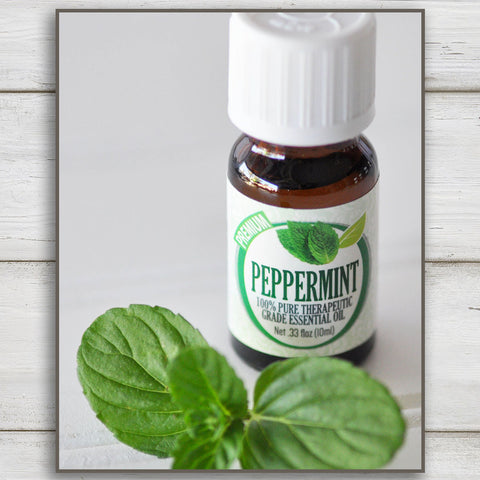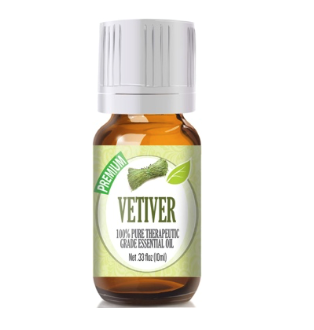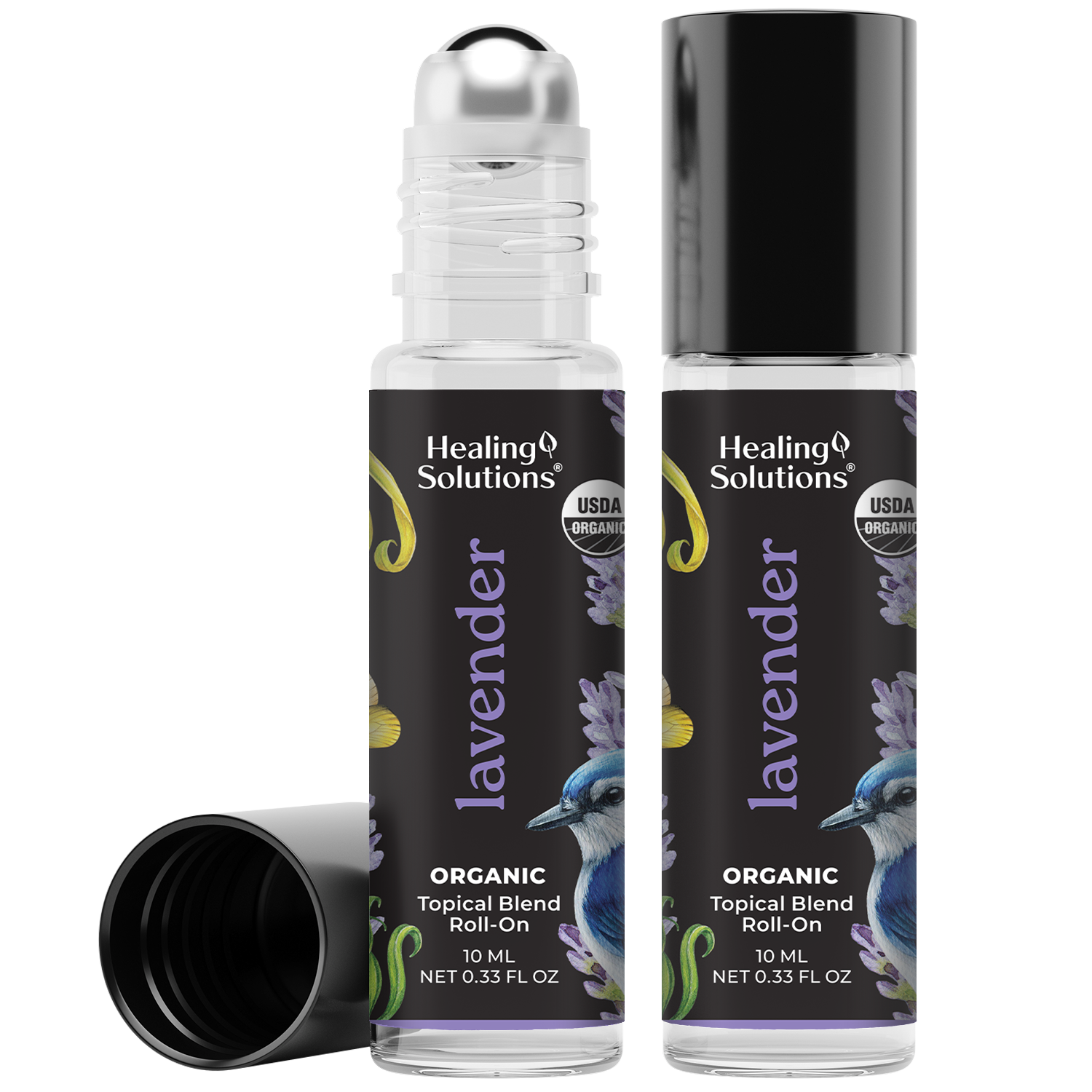Essential oils have been recorded as being used for medicinal purposes as early as 1200 AD. However, in more recent decades this interest has been revived for applications ranging from helping to provide pain relief to offering solutions for healthy skin. A newer interest includes research into how essential oils may help enhance moods, influence states of mental well-being and impact cognitive clarity. One such example is the effect of essential oils on focus.
Focus is more than just being able to avoid distractions to get things done. It drives efficiency, effectiveness, creativity and problem-solving. When we are focused, we are able to put our whole mind toward a task without other thoughts, actions, or needs pulling us away from it. Focus, then, is one of our most important tools for success and achievement in our lives!
What Essential Oils Can Help Increase Focus?
When we’re looking at essential oils that can help increase focus, we’re first looking at essential oils that can help calm the mind and reduce anxieties.
These effects help us be less reactive to distractions. A calm mind means we’re better able to resist intruding thoughts, allowing us to stay present and productive in the moment. As Tim Ferriss, author of The 4-Hour Workweek says, “What you don’t do determines what you can do.”
Essential oils that help increase focus by producing calming properties include:
Lavender Essential Oil
Lavender, or Lavandula angustifolia, is one of the most popular essential oils in the world. It has long been used to help relieve stress, assist in enhancing sleep and even help with certain skin conditions.
When it comes to focus, the aromatic essential oil lavender has been shown to be a powerhouse in providing relaxing benefits by decreasing blood pressure, heart rate.[i] In a study where participants were exposed to diffused lavender essential oil, subjects also reported feeling more active, fresher and relaxed than the control group.[ii]
How to use: Lavender essential oil works well in a diffuser. You may also inhale it directly from the bottle (essential oil is for external use only—do not snort or ingest lavender essential oil), or dilute lavender essential oil to the manufacturer’s specification and apply topically to the temples, bottoms of the feet, or the back of the neck.
Vetiver Essential Oil
Vetiver, or Vetiveria zizanioides, is a type of Indian grass. As an essential oil, vetiver has been of particular interest to researchers studying remedies for ADHD in children. This is because it has been shown to calm and balance the nervous system while focusing the mind and stimulating the circulatory system. In a frequently-cited study by Terry S. Friedmann on the effect of essential oils on ADHD, Friedmann saw significant performance in vetiver improving focus, brain activity and reducing symptoms of ADHD.[iii]
How to Use: Put 5-10 drops of vetiver essential oil in your bath water to enhance calming results. Vetiver also works well in a diffuser, or topically on the wrists, chest and neck. If used topically, be sure dilute to the manufacturer’s specifications.
Some essential oils can help to increase focus by clearing the mind
Essential oils that help clear the mind can also be effective in helping to improve focus. This is because they help to eliminate or weaken distractions, helping users focus more acutely on tasks or projects.
Frankincense Essential Oil
Frankincense, or Boswellia serrata, has been used in Ayurvedic medicine for centuries. It has been thought to offer anti-inflammatory benefits[iv] as well as to help improve symptoms from chronic asthma.[v] In addition, frankincense has recently become popular due to its potential effects on helping to calm and clear the mind.
How to Use: Add a few drops of frankincense essential oil to your bath before bed. In the morning, add a few drops to a tissue and inhale the scent.
Lemon Essential Oil
Lemon, or Citrus limon, is a blissfully aromatic essential oil that has been shown in studies to help improve focus by increasing levels of attention, sustained focus, and memory. In one study, it also showed an increase in work accuracy.[vi]
How to Use: Lemon essential oil works well in a diffuser. It can also be used in room sprays or topically when diffused as recommended by the manufacturer.
Other essential oils help improve focus through improving cognition
Next, we like to take a look at those essential oils that contain the organic compound 1,8-cineole. This compound has many proven benefits, including as an analgesic,[vii] antiviral,[viii] and mucolytic.[ix] However, many more recent studies analyze 1,8-cineole’s impact on cognition and focus.
Rosemary Essential Oil
Rosemary, or Rosmarinus officinalis, has been shown to improve cognitive performance. Research on the effects rosemary essential oil is increasing due to an interest in the effects of 1,8-cineole, an organic compound that contributes significantly to the rosemary aroma. In studies, 1,8-cineole has been shown to improve cognitive performance and mood by increasing cerebral blood flow and provide hypotensive properties.[x]
How to Use: Combine with a carrier such as jojoba, bath salts, lotion, or shampoo. Rosemary should be avoided in use with or around babies and children as it may slow respiration.
Finally, we like to take a look at an essential oil that has been shown to increase mental acuity.
Peppermint Essential Oil
Peppermint, or Mentha piperita, has been shown to enhance alertness, focus and concentration. In one study, researchers found the fragrance of peppermint increased the rate of signal detections in tasks that required focus for prolonged periods of time.[xi]
How to Use: Rub properly-diluted peppermint oil onto the temples and back of the neck. Peppermint also works well in one of our Healing Solutions diffusers.
These statements have not been evaluated by the Food and Drug Administration. These products are not intended to diagnose, treat, cure or prevent any disease. Read our Disclaimer
[i] Peir Hossein K, Maryam Khaleghi G, Ali G. (2013) Evid Based Complement Alternat Med 2013:681304
[ii] Sayorawan W, Siripornpanich V, Piriyapunyaporn T, et al. (2012) The effects of lavender oil inhalation on emotional states, autonomic nervous system, and brain electrical activity. J Med Assoc Thai. Apr;95(4):598-606
[iii] Attention Deficit and Hyperactivity Disorder (ADHD). Terry Friedman, M.D., A.B.H.M.
[iv] Al-Yasiry AR, Kiczorowska B. Frankincense—therapeutic properties. (2016). Postepy Hih Med Dosw. Jan 4;70:380-91.
[v] Basch E, Boon H, Davies-Heerema T, et al. (2004) J Herb Pharmacother. 4(3):63:83.
[vi] Wilson N D, Ivanova M S, Watt R A, Moffat A C. (2010) The quantification of citral in lemongrass and lemon oils by near-infrared spectroscopy. Journal of Pharmacy and Pharmacology 54;9.
[vii] Santos FA, Rao VS (2000) Anti-inflammatory and antinociceptive effects of 1,8-cineole a terpenoid oxide present in many plant essential oils. Phytotherapy Research 14:240-244
[viii] Astani A, Reichling J, Schnitzler P. (2010) Comparative study on the antiviral activity of selected monoterpenes derived from essential oils. Phytotherapy Research 24(5):673-679
[ix] Kehrl W, Sonnemann U, Dethlefsen U (2004) Therapy for acute nonpurulent rhinosinusitis with cineole: results of a double-blind, randomized, placebo-controlled trial. 114:738-742
[x] Mark M, Lorraine O. (2012) Plasma 1,8-cineole correlates with cognitive performance following exposure to rosemary essential oil aroma. Ther Adv Psychopharmacol. Jun; 2(3):103-113
[xi] Warm J S, Dember W N, Parasuraman R. (1990) Effects of olfactory stimulation on performance in a visual sustained attention task. J. Soc. Cosmet. Chem. 42:199-210.













